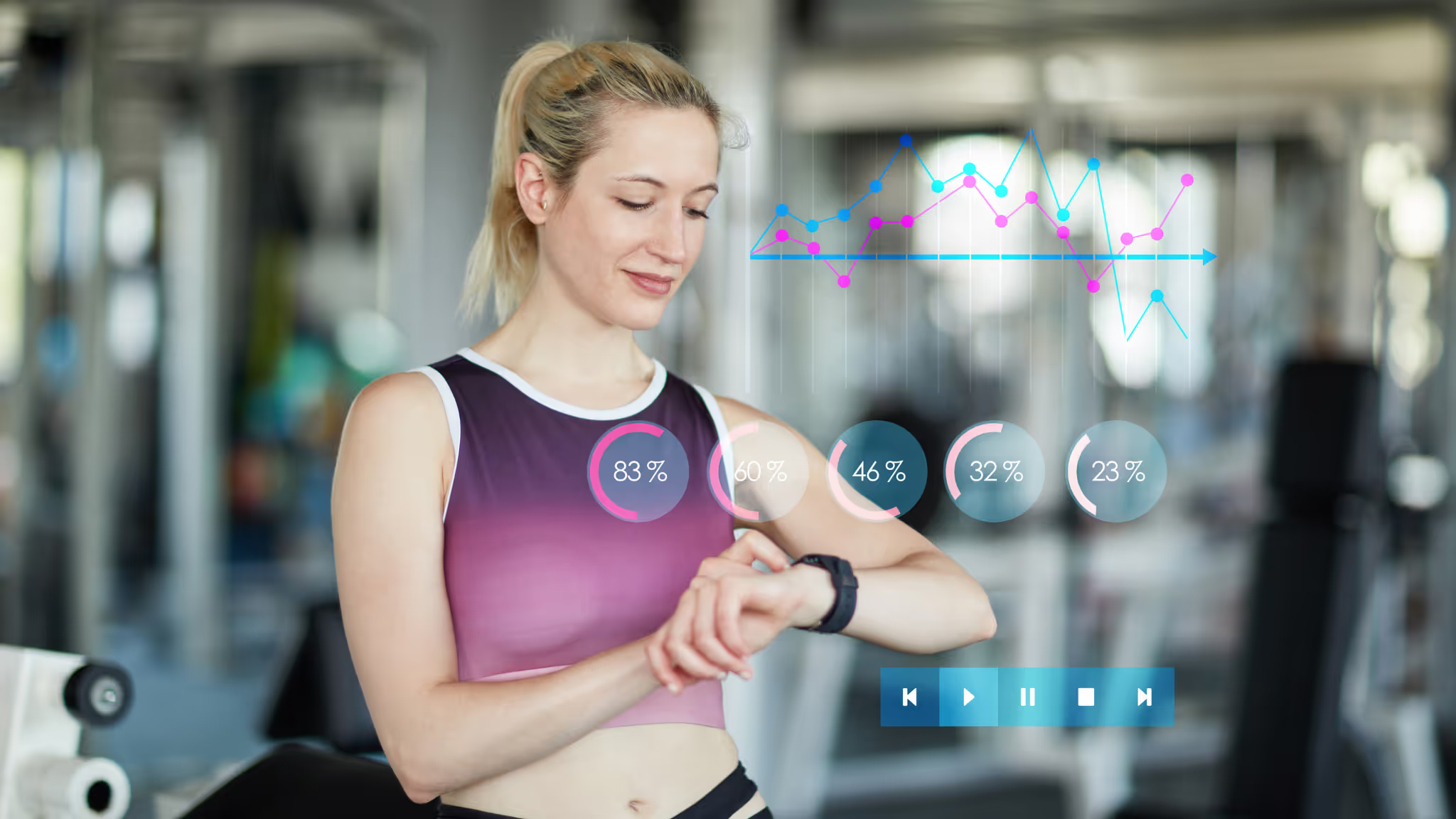The fitness industry is constantly changing, and gym and studio owners are working hard to deliver first-class training experiences to stay ahead of the game. Today, the most widely discussed technological advancements are artificial intelligence (AI) and machine learning (ML). Their implementation can be seen in partially all industry verticals - especially in the health and wellness sector.
From fitness tracking apps like FitBit or Whoop to smart devices like the Apple Watch or Google Pixel Watch, the implementation of AI in the fitness industry is already on the rise. We wanted to share some of the latest trends in this space that can help you stand out from your competitors.
?
AI-backed personal training
AI can analyse vast amounts of training programs to help create personalised plans to suit individual needs and goals. For people who don�t have the time to meet with a trainer in person, getting AI to create training plans makes the most sense, plus it also saves them money! Fitness apps like Freeletics use AI-driven algorithms to generate a customised training program based on the user�s inputs.
?
Data-driven performance insights
With AI�s analytical capabilities, one can easily process large amounts of data related to one�s health like nutrition, sleep analysis or stress levels. With the introduction of wearable tech like FitBit that utilises AI to interpret data collected from its users and offer detailed insights into the user�s overall health metrics, you can give your clients a more personalised workout routine that adds to their overall health and wellness.
?

?
Exercise anywhere, anytime
A great benefit of AI-powered fitness apps is that they give you the ability to exercise anywhere at any time. Platforms like CoachAI use algorithms to analyse users� workouts and provide real-time feedback on the users' form and techniques.
The introduction of online coaching post the pandemic has changed the way people choose to exercise. Trainers today can use AI-driven technologies to analyse their clients� workouts from a virtual setting and provide personalised guidance on how they can improve.
?
Early injury prevention
AI can also identify patterns that might lead to overexertion which can lead to injuries. Companies like Phsimax use AI to understand user movement patterns and provide trainers with insights into the risk of injury for their clients. With this added knowledge, trainers can easily make adjustments to training plans and programs to help mitigate the risk of injury and keep their clients motivated along their fitness journey.
?
Continuous learning with AI
AI isn't just beneficial for clients � it's a powerful tool for trainers' professional development too. AI-powered platforms can provide trainers with insights into the latest fitness trends, research, and methodologies. For example, the NASM Edge app offers trainers access to a library of AI-curated content, including articles, videos, and quizzes to enhance their knowledge base.
As the fitness industry evolves, embracing AI-driven advancements is no longer an option � it's a necessity. The integration of AI into training programs has the potential to transform fitness education, offering a level of personalization, insights, and efficiency that was previously unimaginable. For gym and studio owners, embracing AI means not only staying competitive but also offering clients an unparalleled fitness journey that's tailored to their unique needs and aspirations.
Incorporating AI into your training programs can set your fitness business apart, demonstrating your commitment to innovation and delivering results. The possibilities are limitless, and the journey to the forefront of the fitness industry starts with embracing the power of AI.
?
Want to learn more?
LegitFit helps fitness businesses reduce admin, increase revenue, and build stronger communities. Ready to grow your business?
Helping fitness business from day one
Trusted by fitness professionals worldwide to simplify day-to-day management and accelerate fitness business growth with clear, proven results.
Get demo & pricing















